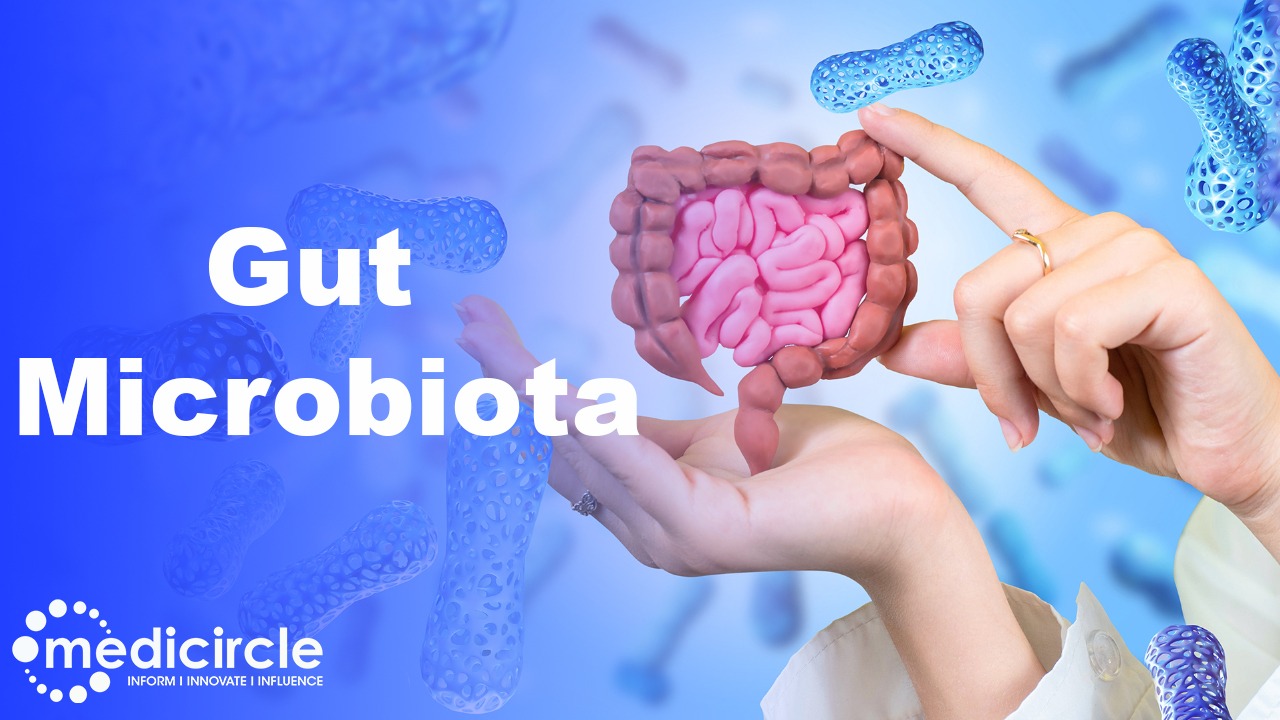In a groundbreaking revelation, scientific research has illuminated a profound connection between human gut microbiota and overall health, extending far beyond the realm of digestion. Recent years have witnessed the unveiling of an intricate web of interactions between the gut biome and various facets of human well-being, leading to a new frontier in healthcare.
The Vital Role of Gut Microbiota : Within the confines of the human gastrointestinal tract reside an astonishing array of microorganisms, including bacteria, viruses, fungi, and other species collectively known as the gut microbiota. Extensive research has pinpointed several predominant groups within the gut microbiome, encompassing Bacteroidetes, Firmicutes, Actinobacteria, Proteobacteria, and Fusobacteria, which together constitute over 90% of the gut microbiota.
A noteworthy player in this microbial community is the bacteriophage, a virus that preys on bacteria. These viruses target key bacteria such as Bacteroides, Faecalibacterium, and Prevotella, exerting a profound influence on the gut's dynamic balance. Furthermore, the fungal composition of the microbiome features prevalent phyla like Ascomycota and Basidiomycota, with fungi such as Saccharomyces and Candida making their presence felt.
The Role of Gut Microbiota in Health : Beyond its diverse composition, gut bacteria wield significant influence over health. These microorganisms play an integral role in bolstering the immune system, supporting metabolic functions, synthesizing vital nutrients, and acting as a defensive shield against harmful pathogens. Leveraging cutting-edge techniques such as high-throughput sequencing, the Human Microbiome Project has yielded insights into the abundance, diversity, functions, and pathways of the human microbiota.
Intriguingly, recent research has illuminated the profound link between gut microbiota and mental health. This unexpected connection forms the basis of the gut-brain axis, a multidirectional communication network that transcends traditional boundaries and offers a fresh perspective on healthcare.
Exploring the Gut-Brain Axis : The gut-brain axis serves as a pivotal communication channel connecting the gastrointestinal tract with the central nervous system. This intricate interplay involves an orchestra of biochemical signals and neural pathways. The gut microbiota plays an active role in this dynamic interaction, engaging with the central nervous system through mechanisms such as vagus nerve activation, immune system modulation, and neurotransmitter production.
In essence, the gut-brain axis forms a complex tapestry encompassing the gut microbiota, gut hormones, immune system, and neural pathways that intricately weave together to maintain holistic health. This axis, in turn, exerts far-reaching effects on physical and mental well-being, impacting vital functions like digestion, nutrient absorption, and gut motility.
The Ripple Effect on Human Health : Altered gut microbiota composition, known as dysbiosis, has emerged as a potential contributor to various mental health conditions, including anxiety, depression, and neurodevelopmental disorders. Research conducted on animals and humans has unveiled the capacity of specific beneficial bacteria to produce neurotransmitters like serotonin and dopamine, which play a pivotal role in regulating mood and emotions.
This interplay extends its influence to neurological and psychological disorders such as Alzheimer's disease, Parkinson's disease, and autism spectrum disorder. Stress further compounds this intricate relationship, with disruptions in the gut microbiota potentially exacerbating mental health symptoms. Conversely, a healthy and diverse gut microbiota is associated with enhanced stress resilience and improved mental well-being.
Unveiling Promising Therapeutic Avenues : The revelation of the gut-brain connection holds immense promise for pioneering therapeutic interventions in mental health. Researchers are actively exploring the potential of probiotics (beneficial bacteria) and prebiotics (compounds that nurture beneficial bacteria) as supplementary treatments for diverse mental disorders. By targeting the gut microbiota selectively, these interventions aim to restore equilibrium and alleviate symptoms.
Clinical studies have demonstrated that probiotics and prebiotics could yield positive outcomes in conditions such as depression, anxiety, Alzheimer's disease, and autism spectrum disorders. Nonetheless, while these avenues show potential, further research is required to ascertain their clinical significance and efficacy compared to existing treatments.
Dietary interventions, too, offer a glimmer of hope. A fiber-rich, plant-based diet, such as the Mediterranean diet, exhibits promise in nurturing gut health and fostering mental well-being. Phytochemicals found in fruits and vegetables form a vital link in this chain, although our understanding of their complex interplay with gut microbiota remains in its nascent stages.
Psychobiotics and Fecal Microbiota Transplantation : Psychobiotics, the emerging frontier in this realm, demonstrate effects that encompass anxiolytic and antidepressant properties. These psychobiotics influence emotional, cognitive, systemic, and neural markers through intricate pathways involving the enteric nervous and immune systems.
Fecal microbiota transplantation (FMT), another burgeoning field, holds the potential to transform mental health outcomes. Studies have indicated that transplanting a healthy fecal microbiome into individuals with major depressive disorder could potentially alleviate symptoms, offering a beacon of hope for those grappling with mental health challenges.
The Path Ahead
As the exploration of the gut microbiota's link to mental health gains momentum, the scientific community is poised for a revolution. While the intricacies of this relationship are still unfolding, the burgeoning evidence underscores the pivotal role played by our gut biome in shaping mental well-being. As researchers dive deeper into this enigmatic connection, a horizon of possibilities for innovative treatments and personalized medicine emerges, promising a brighter future for individuals seeking enhanced mental health and well-being.

 While the intricacies of this relationship are still unfolding, the burgeoning evidence underscores the pivotal role played by our gut biome in shaping mental well-being. As researchers dive deeper into this enigmatic connection, a horizon of possibilities for innovative treatments and personalized medicine emerges, promising a brighter future for individuals seeking enhanced mental health and well-being.
While the intricacies of this relationship are still unfolding, the burgeoning evidence underscores the pivotal role played by our gut biome in shaping mental well-being. As researchers dive deeper into this enigmatic connection, a horizon of possibilities for innovative treatments and personalized medicine emerges, promising a brighter future for individuals seeking enhanced mental health and well-being.










.jpeg)

.jpeg)










.jpg)




.jpg)

